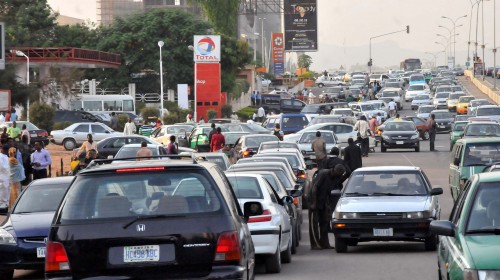Featured
Nigerian Government To Increase Petroleum Pump Price In January 2016

Nigeria’s Minister of State for Petroleum Resources, Dr Ibe Kachikwu, yesterday gave an indication that a new pump price will come into effect next January 2016.
As a result of the scarcity, a litre of premium motor spirit (PMS) now sells for N300 in many parts of Rivers State, including Port Harcourt. In Anambra, it is about N150 for a litre. The NLC, in a statement signed by the president, Ayuba Wabba, yesterday, described the situation as ‘disheartening.’
Speaking in Abuja yesterday during his unscheduled visit to some filling stations within the metropolis, Kachikwu explained that it was high time Nigeria took practical look at the pricing dynamics of the oil and gas downstream sector.
He, however, he was emphatic that there would be no reduction in pump price of regulated products.
“If we don’t deal with these systemic issues, these things will continue to repeat themselves; so, long term answer is simple: We have got to look at the pricing dynamics by January and see how we can sustain supply in this sort of current environment. We have to look at whether we have enough budgetary provisions to deal with these issues, but I am working very closely with the President who is in charge of the sector and takes very direct interest in the sector. But we are going to find solutions to all of these,” he said.
Kachikwu also instructed the Department of Petroleum Resources (DPR) to distribute petrol of any filling stations involved in hoarding to customers free of charge.
While marketers have insisted that they would not import product until payments are made, Kachikwu gave the assurance that payment would be made within the next two weeks, saying: “I am sure within the next one or two weeks, this will be done and the President is looking at shorter ways to get this done, and once we get the Senate’s concurrence (even if the approval for the extra budgetary allocation has not come), the President will authorise the CBN to pay the money.”
He also disclosed that he is leading talks with the Senate President who is in turn working with his team to ensure that something is done about the non-payment.
Kachikwu listed comatose pipelines as a major challenge confronting domestic supply of petroleum products just as he hinted that pumping activities are beginning to happen at the Mosimi pump station.
He added: “We also have the fact that because of the delay in the release of funds for petroleum subsidy. Many individuals are not bringing in products, and so NNPC really has been the one trying to supply products to all parts of the country. It is almost a 100 per cent scenario, as opposed to what it used to be which is about 50 per cent. I am getting all the (oil) majors to be involved and I am instructing that the majors take charge of their stations and bring in products.”






